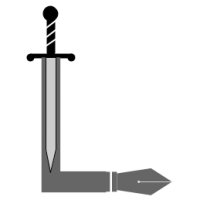What is the .in domains Dispute Resolution Policy used for?
Who can file a dispute? Can I appoint a representative in India to act on my behalf?
Any entity or individual can file a complaint under the inDRP. This means that a foreign entity can also file a dispute against an Indian registrant, for recovery of the domain name. This also means that the authorized representative of a complainant can file a dispute. The complainant will need to provide the representative an authority letter stating the same.
When can a person file a dispute?
How much are the fees for filing a dispute? Who has to pay them?
The fees are as below:
- Administration Fee = ₹ 1,000/-
- Arbitrator’s Fee = ₹ 9,000/-
- For personal hearing = ₹ 2,000/- per hearing (Maximum TWO hearings)
The fees must be borne by the Complainant alone. However, the arbitrator may award costs / reimbursements to the complainant if he is successful.
Who will adjudicate over such a dispute?
The dispute will be adjudicated by a neutral arbitrator on the panel of the .in registry. The Arbitrator shall conduct the Arbitration Proceedings in accordance with the Arbitration & Conciliation Act 1996 as amended from time to time and also in accordance with this Policy and rules provided thereunder.
I am a foreign entity. What is the easiest way that I can file the dispute and appear in the proceedings?
Any entity can file a dispute under the inDRP rules. This means that a duly authorized representative may also be appointed to handle the matter. A letter to this effect may be sent to the .in Registry.
However, personal appearances are not ordinarily required and may be required only in exceptional cirsumstances as per the Arbitrators discretion.
In all other cases, everything is done by:
- Fax
- Courier / Post
Can I go to court over this dispute? Can I appeal in a court over the judgement of an arbitrator of the .in registry?
When purchasing a domain name, you agree to submit any disputes regarding the domain name to arbitration only. Hence, the dispute is heard in accordance with the inDRP rules.
A Party may challenge an arbitrators impartiality or independence by filing a written request to the .IN Registry within seven (7) calendar days of the date of receipt of the notice of appointment of the Arbitrator in question, stating the circumstances likely to give rise to justifiable doubt as to the relevant Arbitrator?s impartiality or independence, together with specific reasons therefore. The .IN Registry, in its sole discretion, shall decide whether such doubts are justified, and if the .IN Registry so finds, the .IN Registry may remove the Arbitrator against whom the challenge was made and replace such Arbitrator with another arbitrator from the .IN Registry?s list of arbitrators.
However, the arbitral award can be challenged by way of a writ petition in the High Court or Supreme Court on the ground mentioned in the Arbitration & Conciliation Act 1996.
A famous domain name dispute is
Satyam Infoway Ltd. vs Sifynet Solutions Pvt. Ltd. AIR 2004 SC 3540
What are the remedies that can be granted? Can costs be recovered?
The remedies available to a complainant are:
- Transfer of the domain to the complainant
- Cancellation of the domain name (neither the complainant or the respondent keep the domain)
- Reimbursement of costs (arbitration fees, misc. related expenses, advocates fees etc.) to the complainant by the respondent.
Can I settle the dispute without undergoing the Arbitration proceedings?
Yes. The dispute can be settled mutually without going through the entire proceedings. This must be done before the Arbitrator’s decision has been pronounced. The Arbitrator will then convert the settlement agreement into the Arbitral Award.
